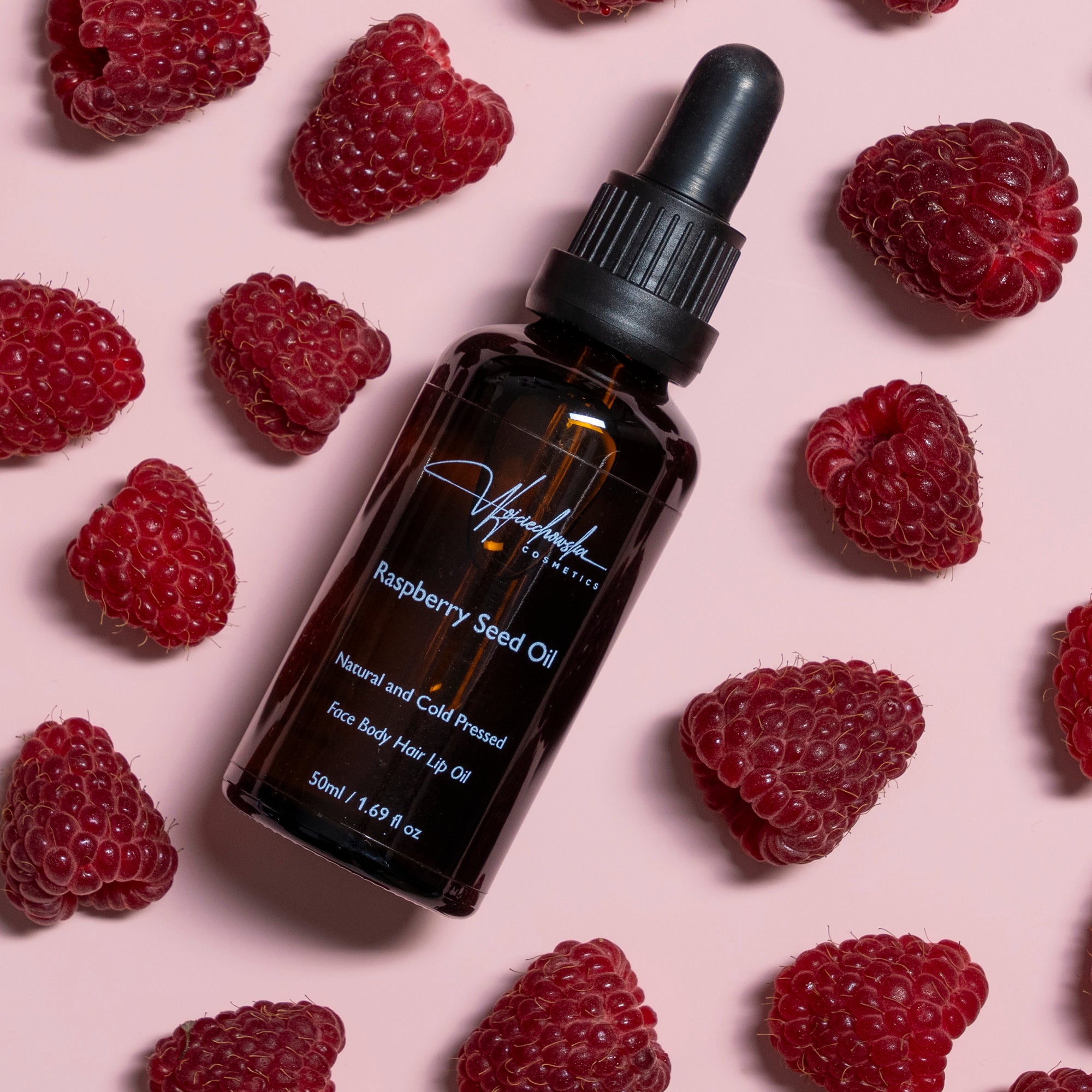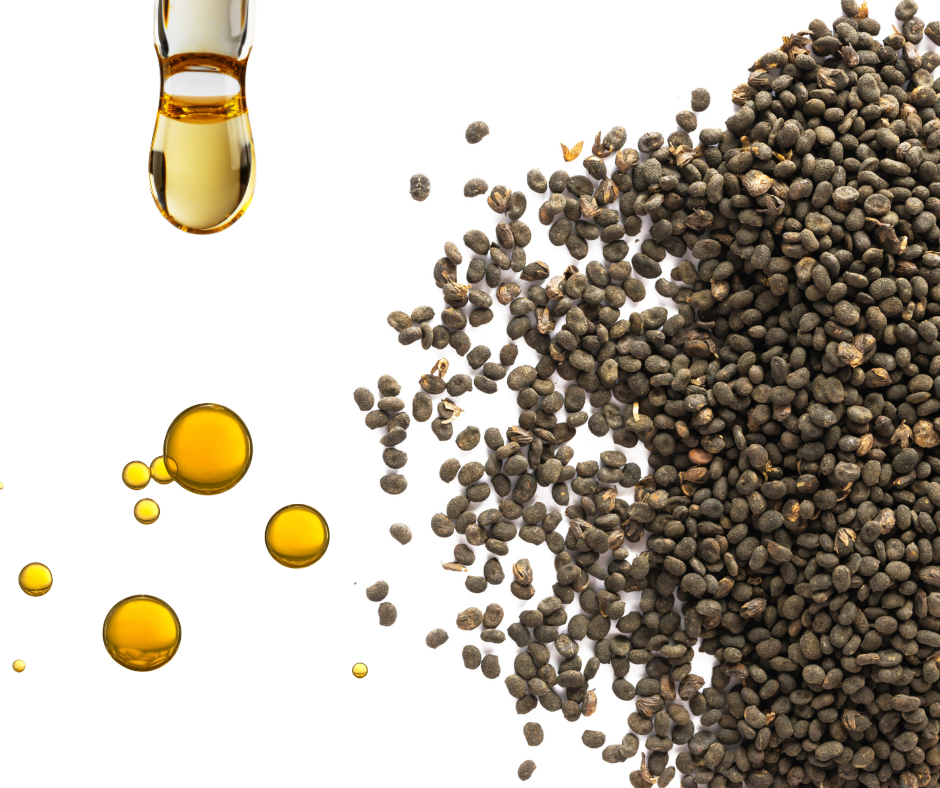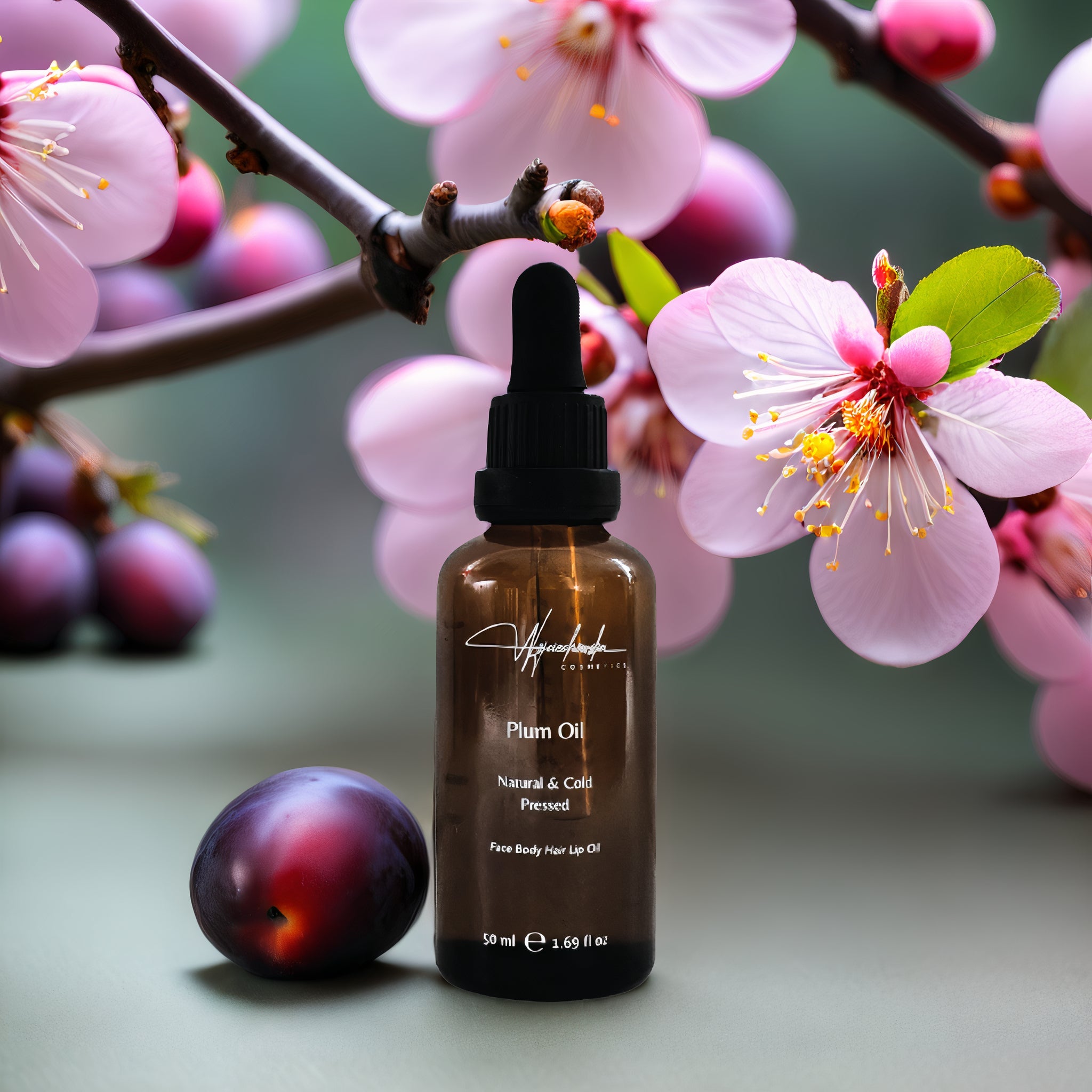
Plant oils as a natural alternative to sunscreen products
You may have heard claims about using plant oils, such as, red raspberry seed oil or virgin coconut oil, as a fully natural replacement of a standard sunscreen product. But how effective really are they, and what is the evidence of those claims? Over the last few months, I have received a significant number of questions and comments about using my Cold-Pressed Raspberry Seed Oil as a natural sunscreen. Some of you are very confident in its ability to absorb UV rays and, although it isn't my intention to discourage you from using it for sun protection (I can appreciate that some people do not like to use an SPF cream), I do want to make you aware of what the scientific research has to say about this matter.

What is the purpose of sunscreen? A sunscreen acts as a protective barrier for your skin by absorbing, reflecting, or blocking UVA and UVB rays. This helps prevent sunburn, premature aging, and reduces the risk of skin cancer caused by UV radiation. It's essential to use broad-spectrum sunscreen with an appropriate SPF to ensure full protection against both UVA and UVB rays when spending time in the sun. SPF (Sun Protection Factor) – is a 'rating' that tells you how well a sunscreen can block the sun's UV rays. If your skin typically turns red after 20 minutes in the sun without protection, using SPF 15 sunscreen should delay that redness for about five hours. So, it's not about the strength, but about how long it keeps you protected compared to no sunscreen. UVA (Ultraviolet A Radiation):
Effect on Skin: UVA rays are primarily responsible for premature skin aging. They penetrate the skin deeply and can lead to wrinkles, fine lines, and age spots.
Sunscreen Protection: Sunscreen with broad-spectrum protection safeguards against UVA rays. It contains ingredients that absorb or block these rays, preventing them from damaging the skin's collagen and causing premature aging.
UVB (Ultraviolet B Radiation):
Effect on Skin: UVB rays are the main culprits behind sunburn. They affect the top layer of the skin and can lead to redness, peeling, and an increased risk of skin cancer.
Sunscreen Protection: Sunscreen with SPF (Sun Protection Factor) primarily shields against UVB rays. It contains compounds that absorb or reflect UVB radiation, delaying the onset of sunburn. The SPF number on sunscreen indicates how much longer you can stay in the sun without burning compared to unprotected skin.
UVC (Ultraviolet C Radiation):
Effect on Skin: UVC rays are the most dangerous but fortunately, they don't reach the Earth's surface as they are absorbed by the ozone layer.
Sunscreen Protection: Sunscreen is not designed to protect against UVC radiation because it's effectively blocked by the Earth's atmosphere.
Each country has different regulations regarding SPF creams, in the UK cosmetic companies making sunscreen products may need to spend as much as tens of thousands of pounds on testing to ensure the effectiveness of their products. In the US sunscreen products are considered drugs and are strictly regulated by the FDA. A sunscreen product isn't something you can just make at home by following a DIY recipe. Given the complexity of the regulations and the costs associated with production of sunscreen products, I believe it is irresponsible and misleading to claim that a plant oil can have a similar effect and SPF range without taking it through proper testing . For full (and sure) protection, I highly recommend that you stick to a conventional sunscreen!

Raspberry Seed Oil as a natural sunscreen While there is some anecdotal evidence and interest in the potential sun-protective properties of certain plant oils, it's important to note that natural oils alone do not provide reliable and comprehensive protection against the sun's harmful UV radiation. The level of sun protection offered by plant oils can be quite low and varies depending on factors like the type of oil, its quality, storage, and how it's applied. Additionally, relying solely on plant oils for sun protection may not be sufficient to safeguard your skin from the full spectrum of UV radiation. The recent research by Ácsová et al. talks about the latest study results showing SPF values of the Raspberry Seed Oil - in vitro was 0.4, in vivo 2.6. As you can see this is a very weak protection and cannot be compared to an SPF cream. Also, Raspberry Seed Oil is not broad spectrum, because its protection against UVA is weaker than against UVB. Sun protection is crucial to prevent skin cancer, and whilst raspberry seed oil does offer some UVB protection, it isn't enough to protect your skin from sun damage.
Summary I would like to point out that science is not absolute, and there may be new studies in the future contradicting what we believe to be true today. I would like to see a day when I find out that I can use a simple plant oil for a broad spectrum sun protection - wouldn't that be amazing :) However, I strongly doubt that this day will ever come. As I mentioned at the very beginning of this post - I do not want to discourage you from using plant oils as a natural sunscreen alternative - but I do want you to be fully aware of the possible consequences of your decision. Everyone needs to decide for themselves. There are many people who never use sunscreen and they live a long and healthy life, and enjoy a healthy, radiant looking skin. Not using sunscreen is not a death sentence, It also depends on the climate you live in and the sun exposure you have throughout your lifetime, however the research on the possible implications of sun exposure without protection is quite clear. If you want to protect your skin from pre-mature aging and cancer I suggest that you choose a standard SPF cream over a plant oil. References: https://pubmed.ncbi.nlm.nih.gov/26610885/ https://www.sciencedirect.com/science/article/abs/pii/S0308814699002605 https://pubmed.ncbi.nlm.nih.gov/33721242/ https://www.ncbi.nlm.nih.gov/pmc/articles/PMC8151122/ https://www.ncbi.nlm.nih.gov/pmc/articles/PMC6773941/


